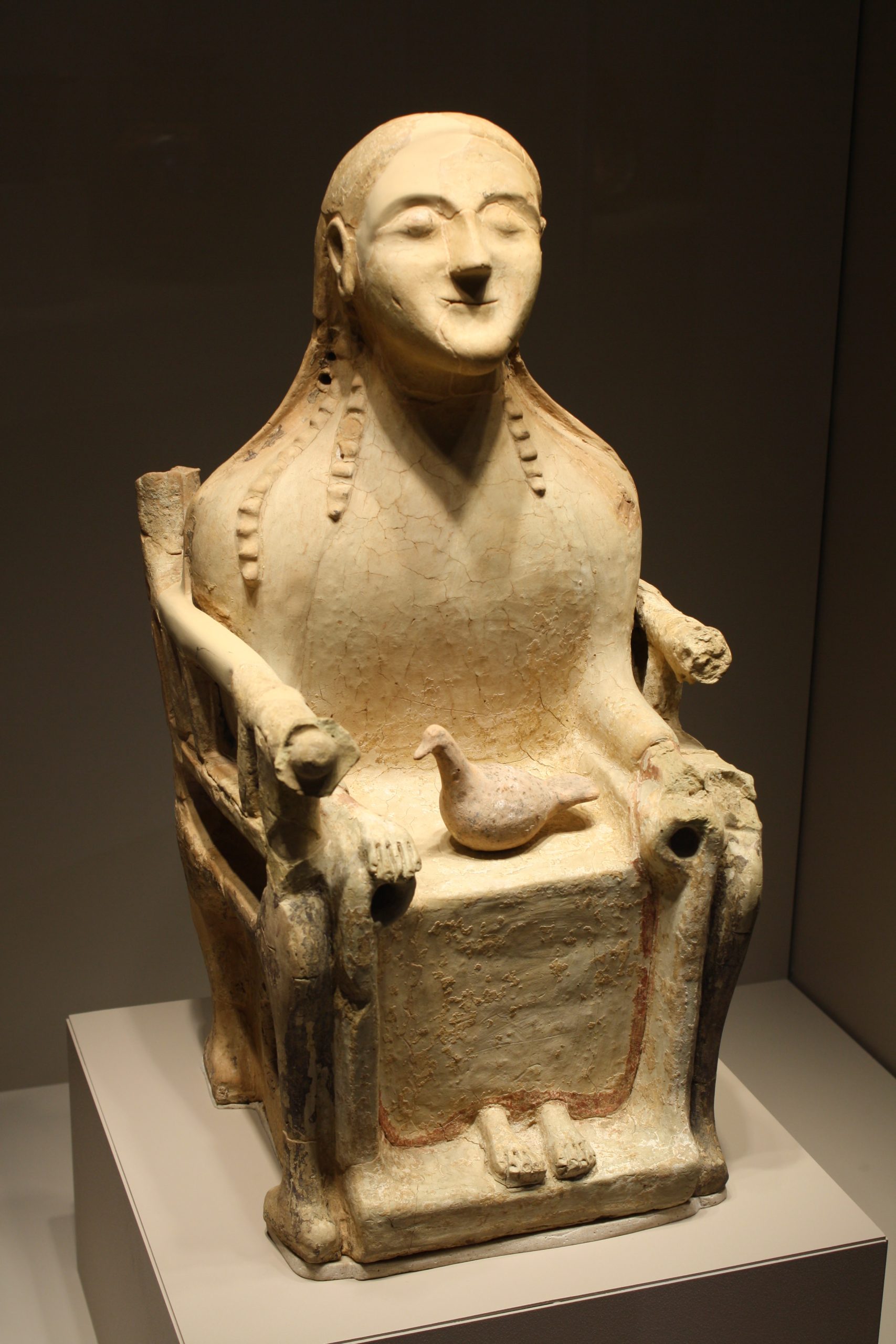Overview
Introduction to Ancient Religions
Ancient religions have captivated the minds of scholars and enthusiasts for centuries. These intricate belief systems offer a window into the past, providing valuable insights into the cultural, social, and spiritual aspects of ancient civilizations. Exploring the origins, apostle, and apocrypha of these religions allows us to unravel the mysteries that have been shrouded in the mists of time. By studying ancient religions, we gain a deeper understanding of the human quest for meaning and the diverse ways in which people have sought to connect with the divine. Through this exploration, we can appreciate the rich tapestry of religious practices and beliefs that have shaped the course of human history.
Importance of Studying Ancient Religions
Studying ancient religions is of utmost importance as it provides us with valuable insights into the beliefs, practices, and cultures of our ancestors. By understanding the origins and development of these ancient religions, we can gain a deeper understanding of the human experience throughout history. Ancient religions played a significant role in shaping the societies and civilizations of the past, influencing everything from governance and social structure to art and architecture. They provide us with a window into the spiritual and philosophical beliefs of ancient civilizations, offering a unique perspective on the human quest for meaning and purpose. Additionally, studying ancient religions allows us to trace the evolution of religious thought and the development of key concepts and ideologies that continue to shape modern religions. By exploring the mythology and creation stories of ancient religions, we can uncover universal themes and archetypes that still resonate with us today. The study of ancient religions also helps us understand the ethical and moral values that guided these societies, shedding light on the foundations of human morality. Overall, studying ancient religions is not only intellectually stimulating but also essential for gaining a comprehensive understanding of the world and our place within it.
Common Themes in Ancient Religions
Common themes can be observed across various ancient religions, providing insights into the beliefs and practices of these societies. One such theme is the concept of sacred spaces. Ancient religions often designated certain locations as sacred, believing them to be the dwelling places of deities or spirits. These sacred spaces could include natural formations such as mountains, rivers, or caves, as well as man-made structures like temples or pyramids. For example, in ancient Greek religion, Mount Olympus was considered the abode of the gods, while the Mayans revered the deadly hill of Tlalocan as a sacred site. Another common theme is the belief in divine intervention. Ancient societies often believed that the gods or supernatural forces directly influenced human affairs. This belief led to the development of rituals and ceremonies aimed at appeasing these deities and seeking their favor. These rituals could include offerings, sacrifices, or prayers, and were performed to ensure prosperity, protection, or victory in various aspects of life.
Origins of Ancient Religions

Early Forms of Religious Beliefs
Early forms of religious beliefs laid the foundation for the diverse and complex belief systems that emerged in ancient civilizations. These early beliefs were often rooted in the worship of natural elements such as the sun, moon, and rivers. People believed that these natural forces held immense power and could influence their lives. Rituals and ceremonies were developed to appease these deities and seek their blessings. These rituals involved offerings, prayers, and sometimes even sacrifices. The belief in the existence of multiple gods and goddesses was also prevalent in many ancient religions. Each deity had their own domain and was associated with specific aspects of life, such as fertility, war, or wisdom. These early forms of religious beliefs laid the groundwork for the rich mythologies and sacred texts that would later shape the ancient religions.
Influence of Nature and Cosmology
Ancient religions were deeply influenced by the natural world and the cosmos. Nature was seen as a powerful force, with various elements such as the sun, moon, stars, and rivers considered sacred. The cycles of nature, such as the changing seasons, were seen as reflections of the divine order. Cosmology played a significant role in ancient religions, as people sought to understand the origins of the universe and their place within it. The movements of celestial bodies were believed to hold great significance, with astrological observations used to predict events and guide human behavior. The belief in the interconnectedness of all things led to the development of rituals and ceremonies that honored and appeased the natural and cosmic forces. These rituals often took place at sacred sites, such as temples and Seven Haunted Monuments, where the spiritual and physical realms were believed to intersect.
Development of Rituals and Ceremonies
The development of rituals and ceremonies played a crucial role in the ancient religions. These practices served as a means of connecting with the divine and expressing devotion. In ancient Greece, for example, rituals were an integral part of religious life. The ancient Greeks believed in the existence of multiple gods and goddesses, each with their own domain of influence. They conducted elaborate ceremonies and sacrifices to appease and honor these deities. These rituals often involved offerings of food, drink, and incense, as well as prayers and hymns. The ancient Greeks believed that by performing these rituals with precision and sincerity, they could gain favor from the gods and ensure prosperity and protection for their communities. The development of rituals and ceremonies in ancient religions reflected the deep spiritual beliefs and practices of the people, and they continue to have a lasting impact on religious traditions today.
Beliefs and Practices of Ancient Religions

Pantheons and Deities
Ancient religions were characterized by a rich and diverse pantheon of deities. These gods and goddesses represented various aspects of life, nature, and the cosmos. Each deity had its own unique attributes, powers, and responsibilities, and was often associated with specific rituals and ceremonies. The belief in multiple deities allowed ancient civilizations to explain the complexities of the world and to seek divine guidance and protection. The pantheons of ancient religions were not static, but evolved over time as societies and cultures changed. Politicized Sufism in Islam is an example of how the interpretation and worship of deities can be influenced by political and social factors, shaping the religious landscape of a civilization.
Mythology and Creation Stories
Mythology and creation stories played a significant role in ancient religions, providing explanations for the origins of the world and the existence of humanity. These stories often depicted gods and goddesses with extraordinary powers, commanding the forces of nature and shaping the destiny of mortals. In many ancient cultures, these deities were revered and worshipped through elaborate rituals and ceremonies. The mythology and creation stories served as a foundation for the religious beliefs and practices of ancient civilizations, offering insights into their cosmology, moral values, and social structures. They were passed down through generations, either in sacred texts or through oral traditions. The study of mythology and creation stories allows us to unravel the mysteries of ancient religions and gain a deeper understanding of the human quest for meaning and spiritual connection.
Sacred Texts and Oral Traditions
Sacred texts and oral traditions played a pivotal role in ancient religions, providing a foundation for belief systems and guiding the practices of worshippers. These texts were revered as divine revelations and were often passed down through generations, preserving the wisdom and knowledge of the ancients. In ancient Tibet, for example, the sacred texts and oral traditions offer incredible historical insights into the religious practices, beliefs, and customs of the ancient Tibetans. These texts provide a glimpse into the spiritual worldview of the Tibetans, revealing their deep connection with nature and their reverence for the divine. The oral traditions, on the other hand, allowed for the transmission of knowledge and teachings from one generation to the next, ensuring the continuity of religious practices and rituals. Through the study of these sacred texts and oral traditions, researchers and scholars gain a deeper understanding of the ancient religions and the cultural significance they held for their followers.
Legacy and Impact of Ancient Religions

Influence on Modern Religions
Ancient religions have had a profound influence on modern religious practices and beliefs. The pantheons and deities worshipped by ancient civilizations continue to be revered in various forms in contemporary religions. For example, the gods and goddesses of ancient Greek mythology are still celebrated and studied in modern Hellenism. Similarly, the mythology and creation stories of ancient religions have shaped the narratives and beliefs of many present-day faiths. These ancient stories provide a foundation for understanding the origins of the world and the purpose of human existence. Moreover, sacred texts and oral traditions passed down through generations have influenced the development of religious scriptures and teachings in modern religions. The ethical and moral values espoused by ancient religions continue to guide the moral compass of individuals and societies today. The principles of compassion, justice, and respect for nature, which were central to ancient religious practices, have become integral to the moral frameworks of many contemporary faiths. The legacy of ancient religions can also be seen in the art, architecture, and symbolism of modern religious structures. The intricate designs, symbolic imagery, and sacred rituals found in temples, churches, and mosques are often inspired by ancient religious traditions. In summary, the impact of ancient religions on modern faiths is undeniable, shaping not only the beliefs and practices but also the cultural, artistic, and moral aspects of contemporary religious life.
Art, Architecture, and Symbolism
Art, architecture, and symbolism played a significant role in ancient religions. These ancient civilizations used art and architecture as a means of expressing their religious beliefs and practices. Symbols were used to represent various deities and concepts, and sacred spaces were constructed to serve as places of worship and ritual. The use of statues, paintings, and sculptures allowed worshippers to visually connect with their gods and goddesses. Additionally, temples and shrines were built to house religious artifacts and serve as gathering places for religious ceremonies and festivals. The intricate designs and intricate details found in ancient religious art and architecture reflect the deep spiritual significance and devotion of these ancient civilizations. These artistic expressions continue to fascinate and inspire people today, providing a glimpse into the rich and complex world of ancient religions.
Ethical and Moral Values
Ancient religions have left a lasting impact on the ethical and moral values of societies throughout history. These religions provided a framework for understanding right and wrong, and for guiding individuals in their actions and behavior. The belief in a higher power or divine authority helped establish a sense of accountability and responsibility towards others. Book Awards were often given to individuals who exemplified these values and made significant contributions to the betterment of society. These awards recognized the importance of ethical conduct and served as a reminder of the principles upheld by ancient religions. Through their teachings and practices, ancient religions emphasized the importance of compassion, justice, honesty, and respect for all living beings. These values continue to influence modern societies and shape the moral fabric of our world today.
Avid Writer with invaluable knowledge of Humanity!
Upcoming historian with over 30 million views online.
“You make your own life.”





